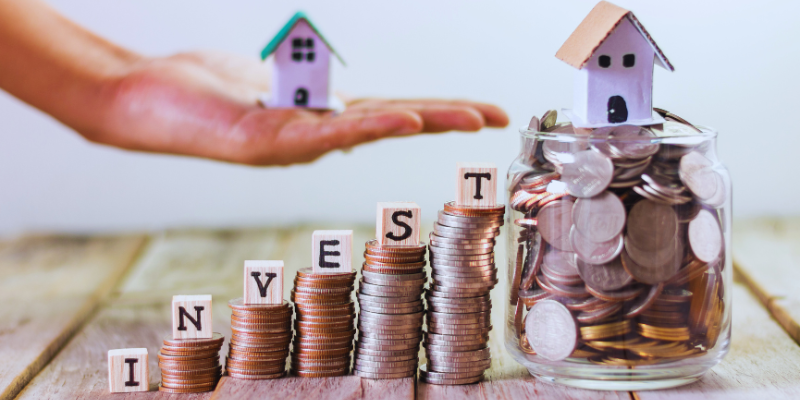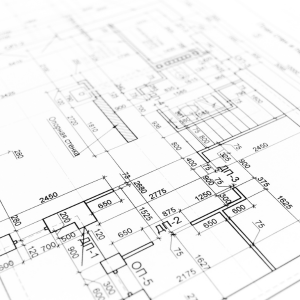
Understanding the Dallas Real Estate Market for Investment Properties
If you want to sell a rental property in Dallas, you need to have a good understanding of the market. Dallas has grown quickly because of a strong economy and a steady flow of new people. This makes it a great place for real estate investors.
When getting ready to sell your Dallas home, it’s helpful to keep an eye on changes in the area, home values, and buyer interest. Areas that are going through revitalization or going up in value quickly are often great places for buyers who want to get the most money back.
What’s more, it helps to know who is likely to buy from you. You can make your marketing more effective if you know who you’re marketing to, whether they are young workers or families. Keeping an eye on the number of items for sale and how long they stay on the market on average can help you figure out the best price and time to sell.
Lastly, working with local real estate professionals who understand the ins and outs of Dallas neighborhoods can give you a valuable edge. Their insight can help you make decisions that reflect real-time market shifts.
How Local Economic Trends Affect the Sale of Your Dallas Investment Asset
Keeping up with local economic trends is a big part of selling your Dallas investment property successfully. The city’s strong job market and wide range of industries directly influence property demand and pricing.
Dallas continues to draw both businesses and skilled workers, which pushes up demand for housing—and with it, property values. But it’s also important to consider that changes in employment rates or economic slowdowns can affect buyer confidence and how much they’re willing to pay.
You can figure out when the best time is to sell by keeping an eye on things like GDP growth, unemployment rates, and movement trends. Interest rates are also important. When they go up, the cost of buying things goes up, which could slow down sales.
You can get more serious buyers for your home by changing how you market it based on these trends. You can position your asset for the best possible result by staying informed and open to change.
Best Time of Year to Sell an Investment Property in Dallas, Texas
When you’re looking to sell an investment property in Dallas, timing can make a big difference. The prime selling season is typically spring through early summer.
Buyers are more active from March to June. This is because many families want to move before the new school year starts, and the warmer weather makes looking for a house more fun. This can lead to better deals and faster purchases because there is more demand.
More people are looking to buy homes in Dallas during these months. As more people compete for homes that are for sale, they tend to sell faster and for higher prices. If you want a quick and easy sale, selling during this time will definitely help you reach your goal.
Using the natural rhythm of the market to your benefit can help generate more visibility and draw in motivated buyers.
Evaluating the Current Value of Your Dallas Investment Property

Figuring out what your investment property is worth in Dallas involves more than just looking at the listing price of a nearby home. Start by reviewing recent sales of similar properties—known as “comps”—in your neighborhood to get a baseline idea of market value.
Pay close attention to figures like price per square foot and how long similar properties stay on the market. Also, take into account any upgrades or standout features your property offers that could raise its value.
Keeping up with Dallas real estate trends and the city’s economy in general can also help you figure out what buyers want right now. Talking to a real estate professional in the Dallas area who specializes in homes for sale adds an expert view based on up-to-date information.
You may also want to get a professional appraisal. This provides a more precise estimate based on the condition of your property and current market conditions, helping you price your home competitively from the start. If you’ve owned an investment property for a while, you may want to compare what Dallas, TX, property managers do versus selling your property or transitioning it to a cash sale.
Key Steps to Prepare Your Investment Property for Sale in Dallas
It’s important to put in work to get your Dallas investment home ready for buyers. Do the basics first—curb appeal is important. Having a clean, well-kept outside and new greenery can help make a good first impression.
Inside the home, decluttering and removing personal items allows buyers to picture themselves living there. Make sure you handle small repairs—fresh paint, fixed leaks, and working lights all make a noticeable difference in how buyers perceive value.
If possible, stage the home to show off its best features. Proper staging can help create a welcoming vibe that leaves a lasting impact. You’ll also want to make sure everything is functioning well—this includes HVAC systems, plumbing, and electrical.
Get a pre-listing check done so you can fix any problems that come up before the house starts being shown to people. You can make a strong first impression on buyers when you list your Dallas home at a fair price and prepare it well.
Essential Tips for Staging Your Dallas Property to Attract Buyers
A well-staged home can speed up your sale and boost the final price, especially in a fast-moving market like Dallas. Begin by boosting your home’s curb appeal—neat landscaping and a freshly painted front door can immediately set a positive tone.
Get rid of extra stuff and junk inside to make each room feel open and flexible. If you want to sell your home to more people, keep the walls plain and use clean, modern furniture.
Good lighting is key—make use of natural light wherever possible, and choose bright, energy-efficient bulbs to keep spaces feeling vibrant. If your property has standout features like hardwood floors or an updated kitchen, make sure they’re spotless and well-lit.
Don’t forget about the smell—a light scent like vanilla or lemon can make the room feel more cozy. Last but not least, fix up any problems before you show the house. Every little thing can be a red flag. When you stage your home correctly, it looks great and helps buyers picture it as their next house.
Highlighting Unique Features: Making Your Dallas Property Stand Out
Draw attention to what makes your Dallas home unique to make it stand out. Upgrades like energy-efficient systems or a sleek new kitchen should be shown off in a big way—they’re big selling points for buyers today.
Architectural details also matter. Whether it’s exposed brick, a custom staircase, or built-in shelving, point out those unique elements that give your property personality and character.
Outdoor spaces can also tip the scale. If you’ve got a landscaped yard, a patio for entertaining, or a relaxing balcony, be sure to feature those areas in your listing photos and descriptions.
Location still plays a big role. If your property is near top-rated schools, shopping, or major Dallas employers, mention that early and often. Buyers aren’t just looking for a house—they’re looking for a lifestyle. The more you can connect your property to that vision, the better.
Marketing Strategies to Sell an Investment Property Quickly in Dallas
You need smart, focused marketing plans to sell an investment property quickly in Dallas. A “For Sale” sign is not enough. To begin, let people know what makes your property unique. This could be its location, its new features, or its closeness to some of Dallas’s best attractions.
Professional photos and virtual tours are essential. They give online buyers a detailed look and encourage them to schedule a showing. Since so many people start their home search online, a strong visual presence is critical.
Use digital platforms like Zillow, Realtor.com, and targeted social media ads to reach the right buyers. Open houses—both in-person and virtual—can also generate quick interest.
Getting help from a local person who knows a lot about the area will help you improve your strategy. They will know which marketing strategies work best in your Dallas neighborhood and can help you make your messages more appealing to qualified buyers right away.
Leveraging Online Platforms for Effective Marketing of Your Dallas Property
To sell your Dallas investment property in today’s market, you need to use online platforms. It’s important to have high-quality pictures and virtual tours that make the ad stand out. This will get serious buyers interested in moving forward.
List your property on well-known sites like Zillow, Redfin, and Realtor.com to ensure maximum visibility. Don’t overlook social media—platforms like Facebook and Instagram can target ads to local or out-of-town buyers. These tools allow you to reach a broader audience than traditional methods alone.
Paid advertising boosts your reach even more, especially if you’re targeting specific demographics. You can also create content about the Dallas lifestyle to make your listing more appealing.
It can help your credibility and exposure to work with local real estate bloggers or people who have a lot of followers. These platforms offer analytics that you can use to find out what’s working and then change your plan to match.
Negotiation Tactics for Selling Your Investment Property at a Higher Price
Strong negotiation skills can make a big difference in what you ultimately earn from selling your Dallas property. Start by doing your homework—know the market, check comparable sales, and set a price that’s competitive yet flexible.
During negotiations, highlight your property’s strengths—recent upgrades, location, or high rental income potential. These factors help justify your asking price and give you an edge.
Be prepared to counter offers strategically. Don’t just focus on the number; consider terms like contingencies, closing dates, and financing. Sometimes, a slightly lower price with better terms could be the smarter deal.
At this point, a skilled agent is the best person to help you. They can help you understand how buyers act, keep your emotions in check, and come up with good answers that keep your bottom line safe.
Negotiating isn’t about winning every point—it’s about getting the best total value from your sale.
Common Mistakes to Avoid When Selling an Investment Property in Dallas
You can make money selling in Dallas’s busy market if you don’t do these common mistakes. Overpricing your house is not a good idea. Anyone can pass on buying your house if you set the price too high, even if the market is strong. It may stay on the market longer than needed because of this.
Another issue is neglecting repairs. Even minor maintenance problems can raise red flags. Addressing visible issues upfront builds buyer confidence and can lead to stronger offers.
Another mistake is not using skilled staging. A well-staged home can help buyers picture themselves living there, which can make it more appealing and raise its value. Bad marketing is also dangerous; if your offering doesn’t have good photos, detailed descriptions, or isn’t visible online, no one might see it.
Finally, choosing the wrong agent—or going without one—can result in missed opportunities. A local expert understands Dallas buyer behavior and can guide you through pricing, marketing, and negotiations effectively.
The Role of Home Inspections and Appraisals in Selling a Dallas Property

Home inspections and appraisals are key steps in a successful Dallas property sale. A thorough home inspection reveals potential issues that could derail a deal later. Fixing problems beforehand can save time, prevent renegotiations, and help justify your asking price.
An evaluation is a professional, unbiased opinion of how much your property is worth. This is very important in places with a lot of competition, like Dallas, where prices that are too high can turn people away and prices that are too low can cost you money.
Inspections and appraisals work together to give buyers peace of mind and help sellers stick to their price plan. Also, these steps make the whole process easier and less unpredictable by lowering the chances of surprises during escrow.
Taking these measures seriously gives you a clear advantage and can ultimately increase both buyer trust and final sale price.
Financing Options Available to Buyers and What They Mean for Sellers
Understanding how buyers finance their purchases can help you, as a seller, better position your property. Most buyers use conventional loans, FHA loans, or VA loans—each with different requirements and timelines.
Sellers often choose conventional loans because they close faster and have fewer conditions. First-time buyers are more likely to get FHA loans, but the home may need fixes before the loan is approved, which the seller must pay for. VA loans are good for soldiers, but there are certain standards for appraisals that must be met, so make sure your home meets them.
Cash buyers offer the smoothest path—no lender involvement means fewer contingencies and a quicker closing. Knowing these financing paths helps you evaluate offers not just by price but by speed and reliability.
Aligning your expectations with the buyer’s financing can lead to a smoother, faster closing with fewer surprises — and that’s exactly how we buy houses cash in Allen.
How to Handle Offers and Counteroffers on Your Dallas Property
When you receive an offer, the way you respond can greatly influence your final outcome. First, review the full terms, not just the price—look at contingencies, closing timelines, and financing types.
If the offer doesn’t meet your goals, a well-crafted counteroffer is your chance to steer the deal in your favor. Use market data and your property’s unique features to justify your position. Timing also matters—respond promptly to maintain momentum and buyer interest.
An experienced Dallas real estate professional can help you navigate these discussions with insight and professionalism. They know how to frame counters that balance firmness with flexibility, ensuring buyers stay engaged while protecting your financial interest.
Negotiating isn’t just about getting the highest price—it’s about reaching terms that align with your priorities while keeping the deal alive.
The Legal Process of Selling an Investment Property in Texas
Selling a property in Texas comes with specific legal steps that shouldn’t be overlooked. First, confirm that the property title is clear and free of liens—this is essential for a smooth closing. A real estate attorney can help ensure that all documents meet Texas legal requirements and protect you from liability.
You’ll also need to provide required property disclosures, which inform buyers about known issues or repairs. Failure to disclose can lead to legal trouble down the line. If your property is tenant-occupied, be sure to review and honor existing lease agreements in line with Texas landlord-tenant laws.
Partnering with a local real estate professional helps ensure your home sale stays compliant with Dallas regulations while simplifying the process by handling much of the paperwork and coordination. Taking these legal steps seriously builds trust with buyers and helps the transaction move forward without unnecessary complications. If you’re looking for a faster, more flexible option, A Cash Home Buyer buys houses for cash in any situation — call us today to see how we can help.
Preparing Legal Documents for the Sale of an Investment Property in Texas
To legally sell an investment property in Texas, you need accurate, well-prepared documentation. Start by securing a recent title report to confirm ownership and catch any issues that could delay the sale. Next, draft a detailed sales contract that covers price, contingencies, closing date, and Texas-specific clauses.
You’ll also be required to include mandatory disclosures, especially related to property condition and known defects. Working with a real estate attorney can ensure all forms comply with Texas regulations and prevent legal missteps.
Also, coordinate with a Dallas-area title company early in the process. They’ll handle the escrow account and facilitate a clean transfer of title at closing. Making sure your paperwork is in order will not only reduce delays but also give buyers confidence in the integrity of the transaction.
Tax Implications and Considerations When Selling a Dallas Investment Property

Taxes play a major role in the financial outcome of your Dallas property sale. If you sell at a profit, you may owe capital gains tax. The rate depends on how long you’ve held the property—long-term gains (over one year) are taxed at lower rates than short-term ones.
Also, keep in mind depreciation recapture—any depreciation deductions you claimed during ownership must be “recaptured” as taxable income when you sell. This can come as a surprise if not planned for.
Some investors use a 1031 exchange to defer capital gains by reinvesting in another property, keeping their capital working for future growth. Texas doesn’t impose a state income tax, which helps, but federal obligations remain significant.
To navigate these rules effectively, consult a tax advisor with experience in real estate investments. Their insight can help you reduce your burden and plan a more profitable exit.
How to Avoid Capital Gains on Selling an Investment Property
Avoiding or deferring capital gains tax requires smart planning. One of the most effective tools is the 1031 exchange, which allows you to reinvest your sale proceeds into another “like-kind” property and postpone capital gains taxes. This is a popular method among real estate investors in Dallas and beyond.
You can also increase your cost basis by keeping detailed records of property improvements and closing costs, which reduces the taxable portion of your profit. In some cases, converting your rental into your primary residence for a period can qualify you for the home sale exclusion, reducing taxable gains.
Always work with a tax advisor or real estate attorney who understands IRS guidelines and Texas-specific rules. The right approach can significantly lower your tax burden—or eliminate it altogether.
What Is the 50% Rule in Rental Property?
The 50% rule is a guideline investors use to estimate expenses when evaluating rental properties. It suggests that 50% of a property’s rental income will go toward operating expenses—excluding the mortgage. This includes costs like maintenance, insurance, taxes, and management fees.
If you’re selling a rental property in Dallas, showing how well it follows the 50% rule can be a valuable selling point for potential investors. It signals predictable expenses and helps them quickly assess return on investment.
Providing detailed records—such as rent rolls and operating statements—can build buyer confidence. In a competitive market like Dallas, highlighting this financial clarity may set your property apart from others.
How Much Tax Do I Have to Pay If I Sell an Investment Property?
The amount of tax you’ll pay after selling an investment property depends largely on capital gains and depreciation recapture. If you’ve held the property for more than a year, your profits are taxed as long-term capital gains—typically at 0%, 15%, or 20%, depending on your income.
Additionally, any depreciation you’ve claimed while renting the property out is subject to recapture tax at a 25% rate. This often surprises sellers who’ve been writing off depreciation for years.
Texas doesn’t charge state income tax, which helps, but you’ll still owe federal taxes. Your exact tax bill depends on how much the property has appreciated and how long you’ve owned it.
A consultation with a tax professional can help you estimate your total obligation and explore strategies to reduce it before closing.
How to Avoid Capital Gains Tax on Rental Property in Texas
To avoid or defer capital gains tax on your Texas rental property, one of the best strategies is the 1031 exchange. This allows you to sell your Dallas investment and reinvest the proceeds into another similar property—deferring the tax liability in the process.
Another potential method is converting the rental into your primary residence. If you meet certain criteria, you may qualify for the home sale exclusion, which allows you to exempt up to $250,000 (or $500,000 for married couples) of gains from tax.
Also, track and report all capital improvements made to the property—they can increase your cost basis and reduce taxable gain. Finally, if your income is lower in the year of sale, you might fall into a lower capital gains bracket.
Every situation is unique, so working with a tax advisor experienced in Texas real estate is your best move to ensure you’re using every advantage available.
Helpful Dallas Blog Articles
- Selling A Dallas, TX, Home With Unpermitted Work
- Closing Costs For Selling A Home Without A Realtor In Dallas, TX
- How To Sell A House With A Lien In Dallas, TX
- Home Sales In Dallas, TX, With A Pending Lawsuit
- For Selling A Mold-impacted House In Dallas, TX, Real Estate
- Selling a House With Asbestos in Dallas, TX
- Selling Your Investment Property In Dallas Real Estate Market
- How To Sell Your Parents’ House In Dallas, TX, Using Power Of Attorney
- Sell Your Dallas, TX, Home With Tenants Still In Place
- Essential Guide To Capital Gains Tax On Home Sales In Dallas, TX

| RENTAL PROPERTIES | CENTRAL TEXAS | REAL ESTATE INVESTOR | DFW | DFW METRO AREA | DALLAS FORT WORTH |
| DALLAS FORT WORTH METRO AREA | TENANCY | LEASE OR RENTAL AGREEMENT | MARKET PRICES | MONEY | FORT WORTH |
| DEPRECIATED | NEGOTIATORS | TURNKEY | TAX DEDUCTIONS | UMORTGAGE | |
| MARKETING TOOLS | LIABILITIES | CASH FLOWING | CASH FLOW | ADVERTISEMENTS | TECHNOLOGY |
| MEDIAN HOME PRICES | LENDING | LANDLORDS | INCENTIVES | FINANCIAL ADVISOR | UNIQUE VALUE PROPOSITION |
| TAX LAWS | NORTH TEXAS | INFORMATION | FINGER | A RENTAL PROPERTY | REAL ESTATE INVESTING |
| INVESTING IN REAL ESTATE |
